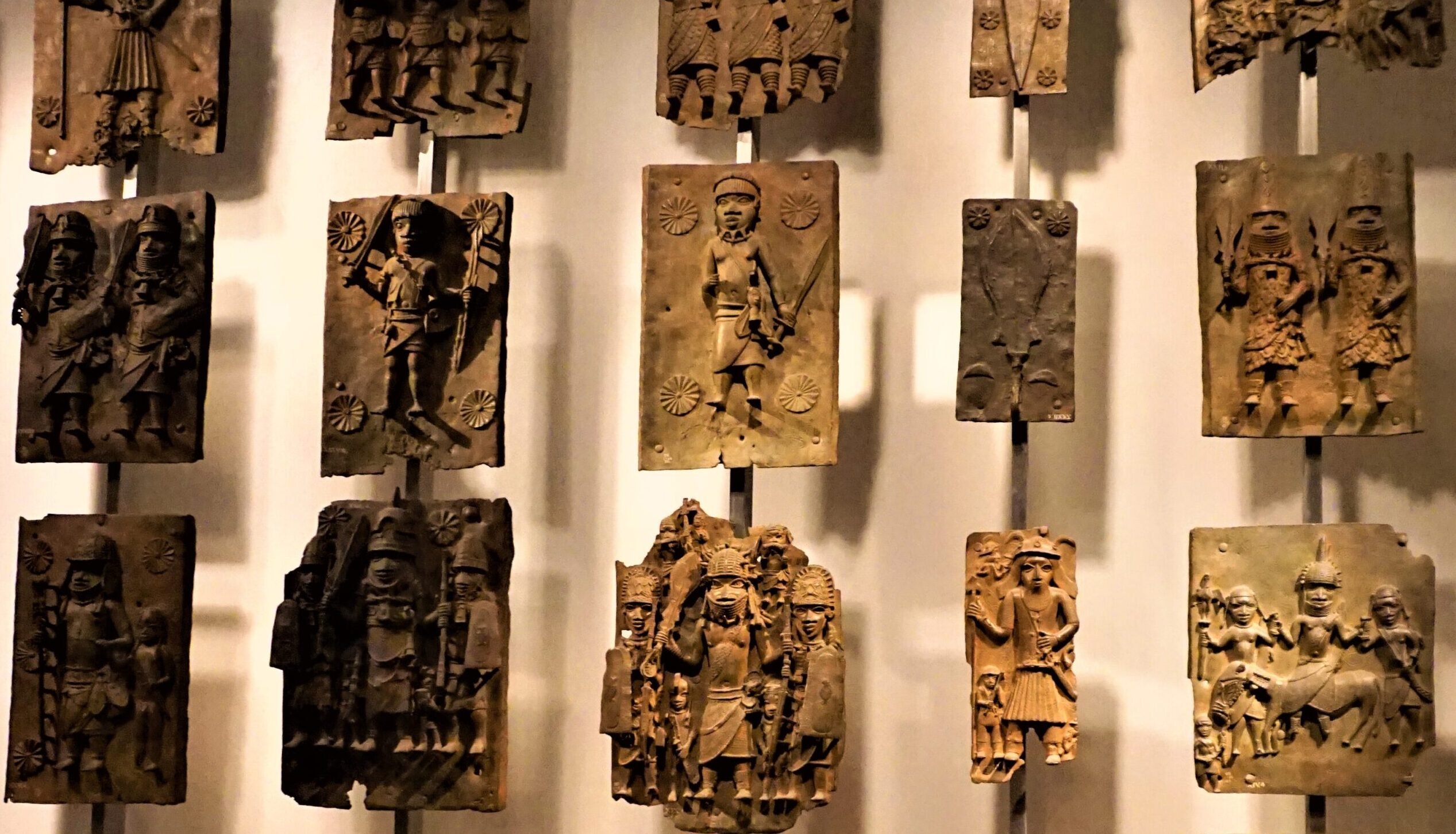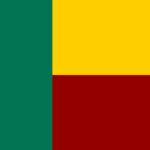Much has been written and said of late about the Benin Bronzes and Africa’s struggle for restitution of its stolen cultural properties in general. As one of the interlocutors who has helped to revitalise this longstanding issue that continues to trigger curiosity and capture public attention, I feel obliged to share my perspective on the long struggle for the restitution of these priceless cultural assets and take stock of the journey thus far.
At the centre of this global debate are the Benin Bronzes; an open-and-shut case of theft, murder and racism that transpired in 1897 and, for that reason, the locus classicus of looted African art. The Benin Bronzes stand in contrast to other looted African art that may have been ‘lifted’ from an archaeological dig or burial site; the Benin Bronzes were forcibly stolen from the city after it was violently invaded by a British ‘punitive’ force, desecrating/burning the palace of the Oba of Benin and breaking all Just War doctrinal conventions since the days of Saints Augustine and Thomas Aquinas.
- Missing jet: Boko Haram released doctored video, says Air Force
- Why we want drug test for politicians, students – Marwa
In Benin, Victorian missionary and explorer David Livingstone’s 3 ‘C’s – civilisation, commerce and Christianity – did not get a look in. Instead, it was a case of the 3 ‘R’s: Racism, Robbery and Rapaciousness.
It is important to remind ourselves that the premise for the 1897 Benin massacre was laid 12 years earlier in Berlin during the 1885 Conference that established the ground rules for the Scramble for Africa. The Berlin Conference created the framework for European colonial powers to partition an entire continent and forcibly take physical control on the ground whilst avoiding conflict among them. It adopted the ‘Hinterland theory’ that granted a would-be colonial power with a coastal possession or foothold the right to lay claim to unspecified territory in the adjoining hinterland. This provided a basis for Britain, with an established foothold on the Niger Delta Atlantic coast, to send a ‘punitive’ force to the inland kingdom of Benin on a murderous expedition in the quest to establish full control over the hugely lucrative oil palm trade. Soon enough, Maxim guns and explosives produced a bonanza of antique Benin Bronzes and ivory, thereafter carted away to Britain. Whereas, the Oba of Benin was captured and exiled to be replaced by a British resident as the new symbol of colonial power, the Bronzes and other looted items created a sensation in Europe popularised by the Illustrated London News weekly magazine.
This sordid episode of plunder was further whitewashed, even supported by a couple of books at the time that framed and glamorised an indiscriminate bloodbath as part-anthropological, part-civilising expedition into darkest Africa.
Participants in the Benin carnage and state officials would go on to sell the proceeds of their crime to Museums and private collectors in Europe and North America, while others were offered as impressive gifts. The very existence of the Benin Bronzes and other cultural properties in Western Museums are a validation of Krishna Menon’s definition of colonialism as a permanent aggression.
And, for as long as these proceeds of aggression remain tucked away in anthropological and ethnological museums that are meant to serve as some sort of moral morgue for the colonial atrocities, the aggression continues to this day. They debunk national mythologies of appealing to moral suasion and rule of law, good governance and international best practice.
Nigeria has been consistent in its demand for the return of its stolen cultural assets over the course of history. Our requests for restitution are a matter of record, notwithstanding thoroughly dishonest, disingenuous and now discredited attempts to pretend otherwise. The Benin kingdom began demanding for the return of the so- called Bronzes shortly after the 1897 massacre. After independence in 1960, the new Nigerian state began demanding the same.
All attempts by the Nigerian government to secure the mask in time for FESTAC (even as a loan) proved futile. Instead, Nigeria had to make do with a replica hastily carved by local sculptors. For Nigerians from my generation born in the ‘60s into an independent nation and who grew up in the ‘70s, FESTAC left an indelible mark on our psyche. It was a moment of collective pride and validation of our nationhood and rich cultural heritage for black people that had endured slavery, colonial subjugation and institutional racism.
Relying on United Nations conventions and resolutions for countries that hold the looted art to do the right thing, some African government functionaries inadvertently fell into the deniability vortex created by the passage of time that led to the oft repeated fallacy that no one had asked for the return of stolen properties.
I arrived in Berlin as Nigeria’s Ambassador to Germany in the summer of 2017. Much to my chagrin, the Dahlem Ethnological museum housing the second largest collection of Benin artefacts in the world had just closed its doors in preparation for moving some of the proceeds of 1897 to the new Humboldt Forum museum located at the city’s Palace, which was still being revamped. I made do with a visit to Bode Museum’s Unvergleichlich (‘Beyond Compare’) exhibition that paired works from Africa and Europe side by side.
A 16th century Benin statue of the Goddess Irhevbu, acquired from a William Downing Webster in 1900, was displayed next to Donatello’s Puto. Although it was no surprise that all the Benin pieces on display were from 1897, the exhibition also featured Ife bronzes, significantly 12th-15th century terracotta that once “convinced” Berlin-born archaeologist Leo Frobenius with certainty, they were the work of lost Greeks of Atlantis – as Africans were incapable of producing such masterpieces devoid of European influence.
Under my leadership, the Nigerian Embassy Berlin organized and hosted its first Annual Cultural Day on 20th July 2019. The event was attended by politicians, museum curators and diplomats among several others, during which I delivered a speech unequivocally restating the request for the return of stolen cultural properties.
It has been a slow process, made easier by our confidence in the cause that Nigeria is championing and the power it has to break down institutional inertia. The Embassy followed up with a letter dated 16th August 2019 addressed to Chancellor Angela Merkel (with Culture Minister Monika Grutters in copy) signed by me requesting for the return of all Nigerian stolen cultural properties and clearing any doubts or confusion about which Nigerian entity to engage in discussing the issue of return.
We followed up with a Note Verbal which did eventually receive a response, followed by a visit of a German delegation to Abuja and Benin that met with the Director-General of the National Commission of Museums & Monuments and the Governor of Edo State.
The visit is quite encouraging and is in my opinion a considerable improvement on leaving discussions in the hands of the Benin Dialogue group which, although useful, is not sufficient to facilitate the consummation of Nigeria’s 50-year request for restitution. An open-ended dialogue involving six countries and consisting primarily of museum representatives could end up being just that; an open-ended dialogue. The Nigerian government’s restitution demand is also not limited to Benin Bronzes, but includes Ife Bronzes and Nok Terra Cotta among several others, some stolen after Nigeria’s independence. And it is important that African countries get back what was stolen in order to awaken the muscle memory of abiding by laws, respecting due process and a rules-based international order.
Yusuf M Tuggar, is Nigerian Ambassador to Germany

 Join Daily Trust WhatsApp Community For Quick Access To News and Happenings Around You.
Join Daily Trust WhatsApp Community For Quick Access To News and Happenings Around You.


